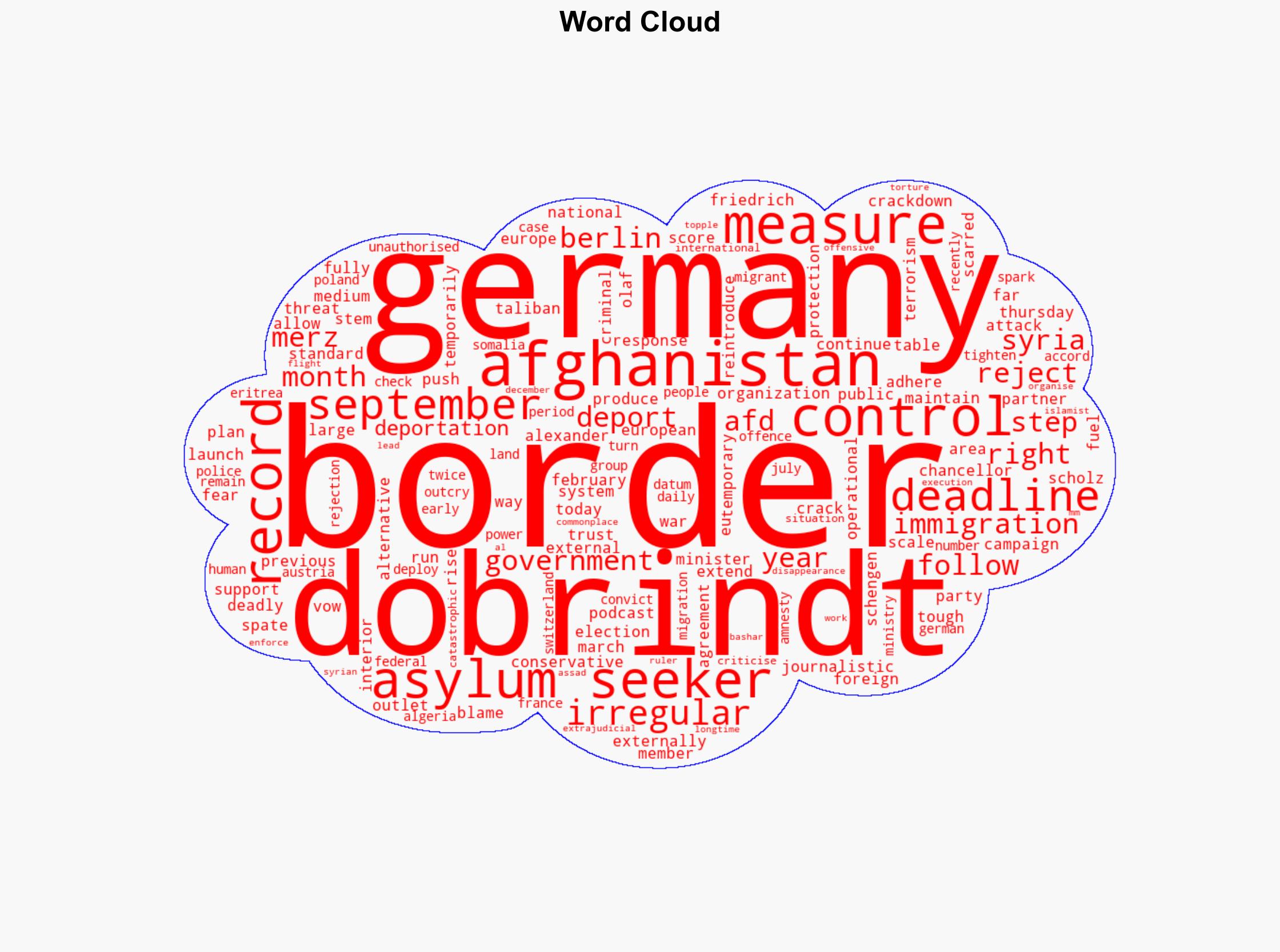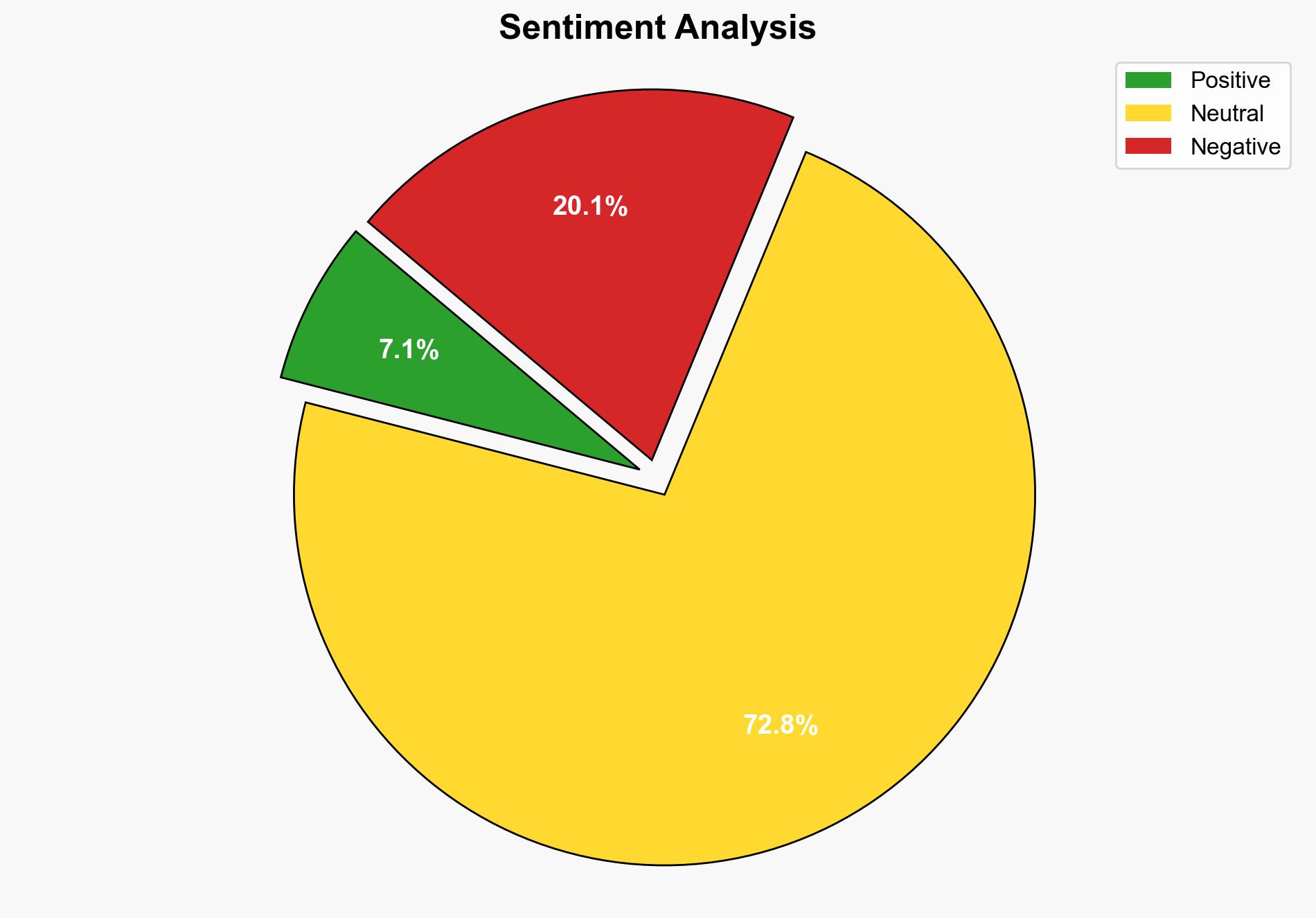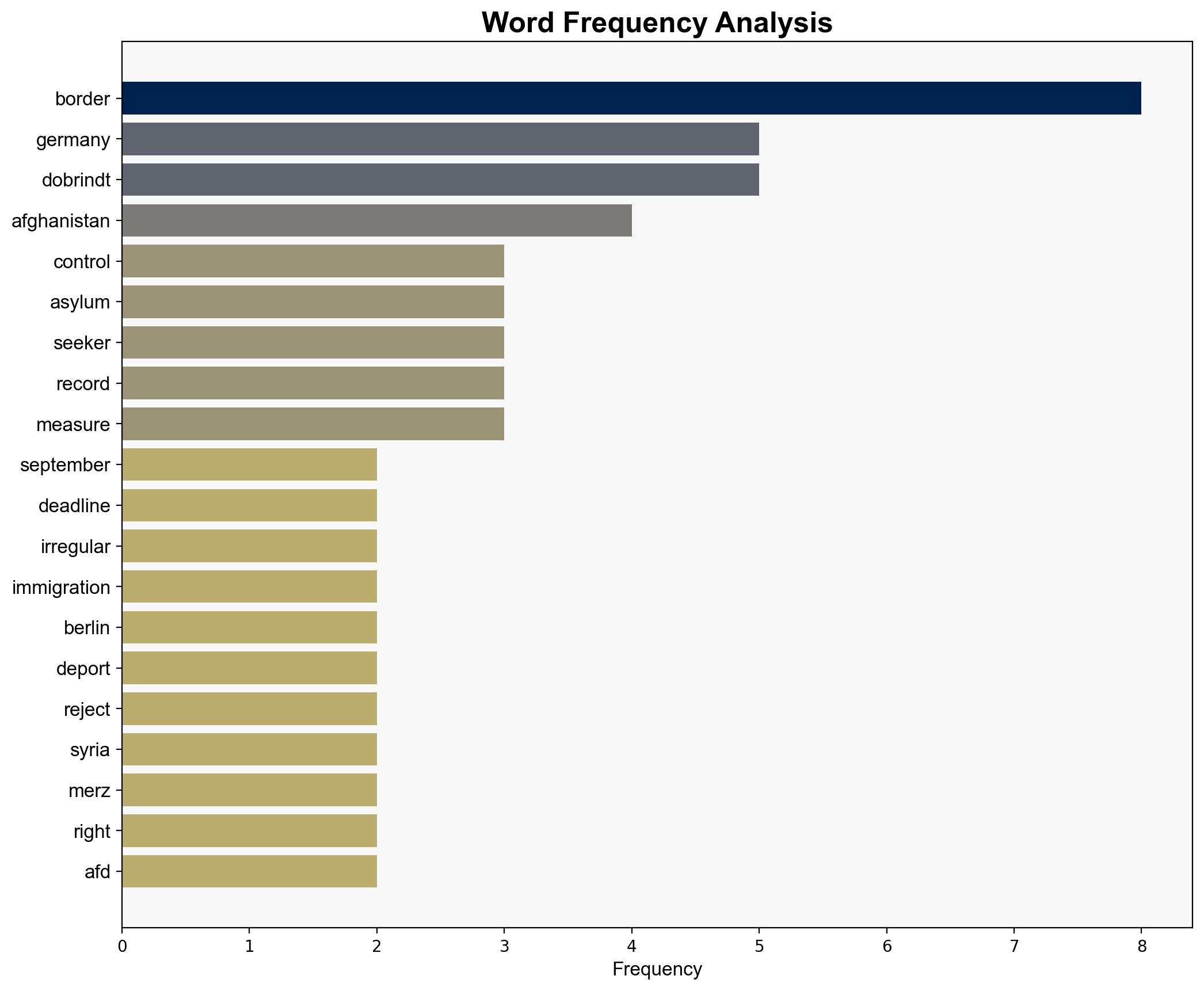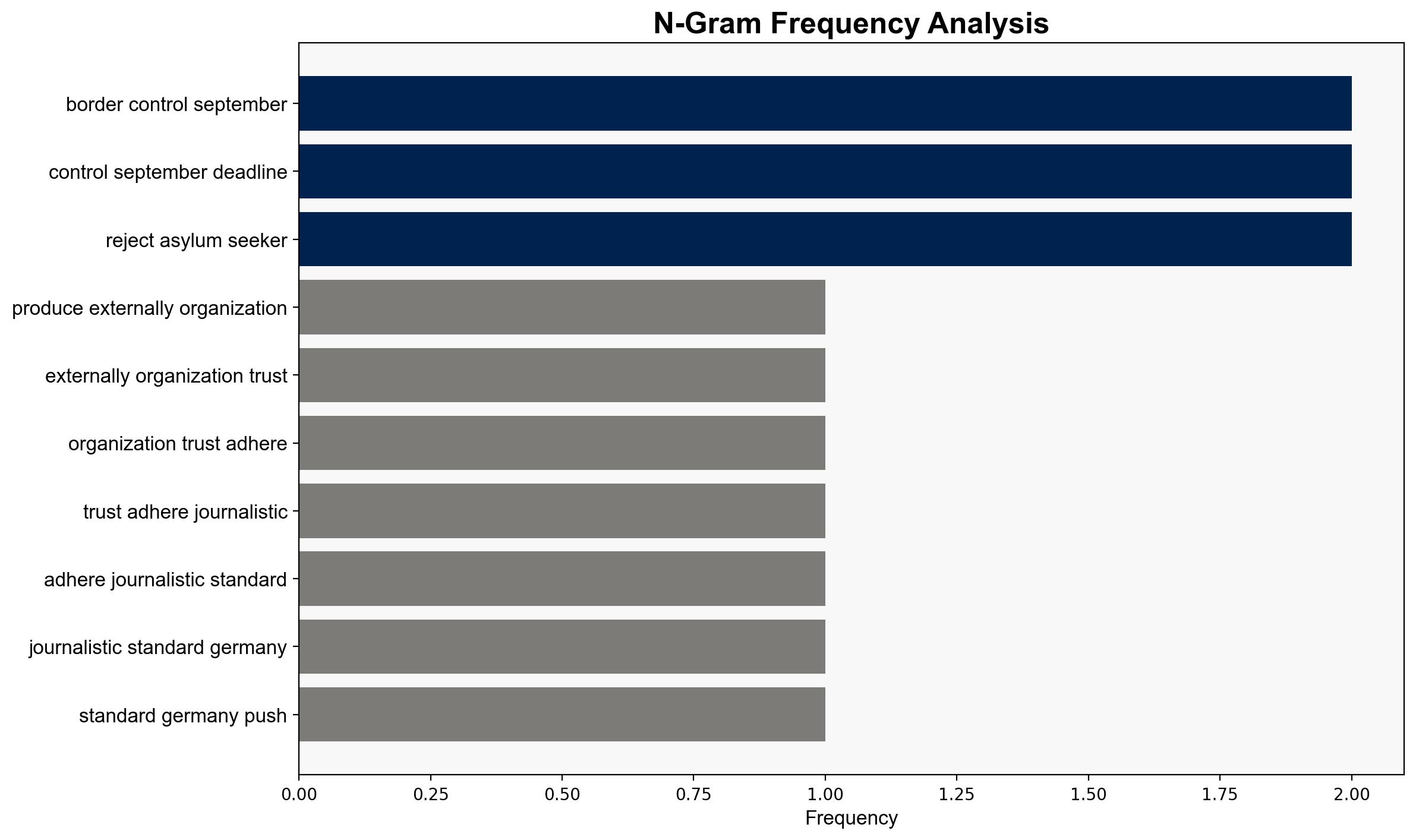Germany to extend border controls in migration crackdown – EURACTIV
Published on: 2025-08-07
Intelligence Report: Germany to extend border controls in migration crackdown – EURACTIV
1. BLUF (Bottom Line Up Front)
Germany’s decision to extend border controls reflects a strategic move to address irregular immigration and domestic political pressures. The most supported hypothesis suggests that this action primarily aims to curb the influence of far-right political entities by addressing public concerns over security. Confidence level: Moderate. Recommended action: Monitor political shifts and public sentiment to anticipate further policy changes.
2. Competing Hypotheses
Hypothesis 1: Germany’s extension of border controls is primarily a response to increased security threats and irregular immigration, aiming to enhance national security and comply with EU regulations.
Hypothesis 2: The extension is a politically motivated maneuver to counteract the rising influence of the far-right Alternative for Germany (AfD) by addressing public fears and demonstrating a tough stance on immigration.
Using the Analysis of Competing Hypotheses (ACH) 2.0, Hypothesis 2 is better supported. The timing of the extension aligns with political narratives and upcoming elections, suggesting a strategic focus on domestic political stability over purely security concerns.
3. Key Assumptions and Red Flags
Assumptions:
– Germany’s border control measures will effectively reduce irregular immigration.
– Public fear is a significant driver of political support for far-right parties.
Red Flags:
– Lack of detailed data on the effectiveness of previous border control measures.
– Potential underestimation of humanitarian concerns and international criticism.
4. Implications and Strategic Risks
The extension of border controls could strain Germany’s relations with neighboring countries and the EU, potentially leading to economic and political repercussions. There is a risk of escalating tensions with human rights organizations and increased domestic polarization. Additionally, the focus on border control may divert resources from other critical security areas, such as cybersecurity and counter-terrorism.
5. Recommendations and Outlook
- Engage in diplomatic discussions with EU partners to ensure alignment and minimize friction.
- Enhance public communication strategies to address security concerns without exacerbating xenophobia.
- Scenario Projections:
- Best Case: Border controls effectively reduce irregular immigration and stabilize political dynamics.
- Worst Case: Increased tensions with EU partners and domestic unrest due to perceived overreach and humanitarian issues.
- Most Likely: Temporary political stabilization with ongoing debates on immigration policy and human rights.
6. Key Individuals and Entities
Alexander Dobrindt, Friedrich Merz, Alternative for Germany (AfD)
7. Thematic Tags
national security threats, immigration policy, political strategy, EU relations





